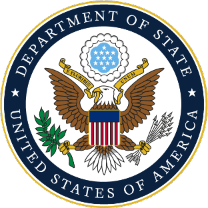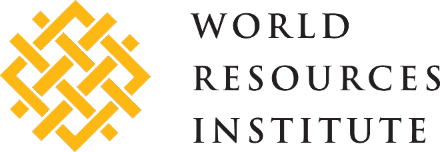Nature Crime: Timber Tracing
Victor E. Miyakawa
Victor E. Miyakawa
Program Manager, US Forest Service / International Programs and Trade
Victor Miyakawa is a seasoned expert in information systems for natural resource governance, with over 20 years of experience across Latin America. He specializes in the design and implementation of large-scale information and control systems to support forest and wildlife management, particularly in the context of combating illegal logging and associated trade, as well as promoting data transparency.
He has led technical cooperation programs with national and regional governments in Peru, Colombia, and Ecuador, integrating advanced technologies such as remote sensing, timber identification tools, and forest inventories. His thematic expertise includes geoinformatics, bioinformatics, data sharing platforms, and capacity-building for government agencies, communities, and private sector stakeholders.
Fluent in Spanish and English, Victor also brings strong skills in monitoring and evaluation, multi-stakeholder facilitation, and regional coordination to support environmental governance and information integration efforts aligned with global transparency and conservation goals.
Maria Soledad Jaime-Arteaga
María Soledad Jaime Arteaga is a specialist in Latin American environmental crime enforcement, with deep knowledge of local wildlife and forest protection laws across the region. Her work focuses on illegal logging, deforestation, and supply chain fraud, combining legal frameworks with innovative technologies (e.g., forensic wood identification, satellite monitoring) to strengthen compliance.
Legal & Regional Experience:
• Peru: Served in the Justice Department (Anti-Corruption Branch), designing administrative reforms and KPIs for transparency in natural resource governance.
• Argentina: As USFS Program Manager, trained law enforcement and park rangers on illegal logging prevention, fire management, and invasive species policies.
• Regional Scope: Leads the USFS Illegal Logging Program across Latin America, collaborating with the Foreign Agricultural Service (Colombia), INTERPOL, and Indigenous communities to align local laws with international standards (e.g., Lacey Act, CITES).
• Multilateral Engagement: Advises governments (Ecuador, Brazil) and NGOs on legal tools to combat wildlife trafficking and land-use crimes, informed by fieldwork and policy analysis.
Open Timber Portal
The Open Timber Portal is an initiative launched by the World Resources Institute to incentivize the production and trade of legal timber. The OTP compiles information from three different sources: official concession boundaries and the list of registered timber producers from the government; documents uploaded voluntarily by timber producers to demonstrate compliance; and observations by third party forest monitors.
TimberStats
TimberStats is a new, interactive, data-driven platform that will aid law enforcement and governments in monitoring the timber trade and detecting illegal shipments.
Red Flag Indicators for Wildlife and Timber Trafficking in Containerized Sea Cargo
Compendium that aims to capture the most common red flag indicators for illegal wildlife trade (IWT) happening through containerized sea cargo. It aims to guide and assist the maritime shipping sector in detecting possible non-compliance and IWT-related activities in their supply chains. It also provides recommendations and links to existing tools and best practices to help companies prevent further exploitation from traffickers.
ARBOR HARBOR
A reference system linking information on trees and their global trade, especially species at risk of over harvesting. The system integrates data on taxonomy, conservation, geography, and trade regulations, all acquired from online databases or primary literature. Intended users include professionals or enthusiasts working with forest resources and their sustainable use.
XYLOTRON
A complete, self-contained, multi-illumination, field-deployable, open-source platform for field imaging and identification of forest products at the macroscopic scale. The XyloTron platform integrates an imaging system build with off-the-shelf components, flexible illumination options with visible and UV light sources, software for camera control, and deep learning models for identification.
Stardust
Dust-like material that can be sprayed onto wood and detected only with a hand-held device. Stardust has the potential to be applied to timber and pulp and paper products as a cheaper alternative to bar-codes, radio-frequency identification (RFID) and other tracking technologies. Stardust is applied via microscope optical markers, thus promised to be precise, hand-held and practical in-field detection devices. There are multiple markers available that should provide instant authentication.
TreeTAG
Smartphone-based supply chain traceability system developed by TreeTAG Technologies, Inc that tracks the location of logs transported from the forest to the mill. It was piloted in Guatemala and is since no longer active or available for use.
SEINEF
Web platform that requires actors along the supply chain to enter volume and authorization information. The system allows government officials and law enforcement officers to follow the flow of timber products from the forest to buyers, and identify discrepancies in volumes, species and products reported.


